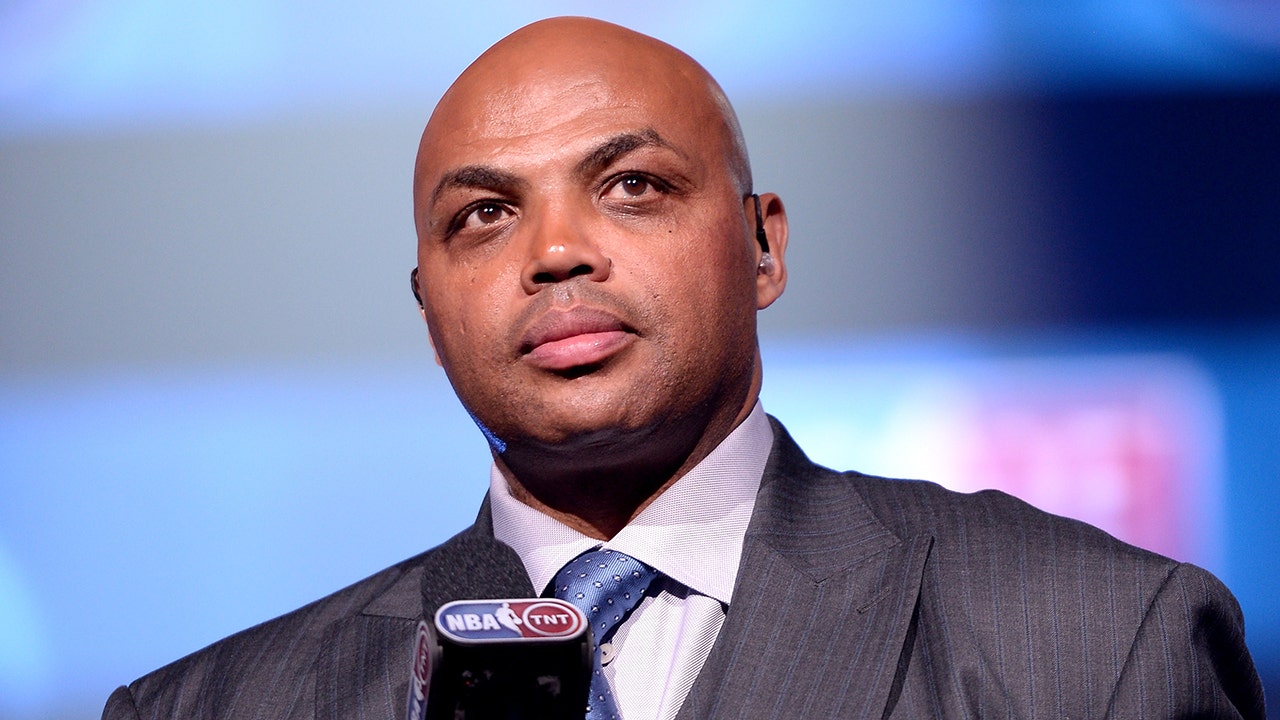On what would have been Roth’s 90th birthday, readers and writers descended on the late author’s hometown to honor and debate his legacy
The author would have turned 90 Sunday — he died in May 2018 of congestive heart failure — and was the subject of a three-day celebration last weekend, “Philip Roth Unbound,” in this North Jersey city that he left seven decades ago but never abandoned in his writing. Newark was to Roth what Paris was to Proust, a connection he acknowledged explicitly in 1998’s “The Facts: A Novelist’s Autobiography”: It’s always been “family, family, family. Newark, Newark, Newark.”
Over the weekend, the repertoire was Roth, Roth, Roth. Panels on Roth, readings of Roth, books by Roth, tchotchkes featuring Roth, bus tours of Roth’s beloved metropolis.
For all our current division about identity, political correctness and cancel culture — subjects Roth presciently and without hesitation tackled in his fiction, particularly “The Human Stain” (2000) — here was a Great White Dead Male Author being honored as though he had published this month.
Roth was a literary provocateur who dove head first into third-rail subjects. His writing on Judaism, politics and women, not to mention his own history with women, will likely fuel dissertations for decades to come. Roth had a felicitous childhood and, even in the annals of fraught literary unions, two of the most miserable and well-documented marriages. Roth never became a father.
“He wanted to be a good man — not a nice man,” said author Bernard Avishai, a friend of Roth’s, over the weekend. Roth courted controversy. He repelled legions of readers, including some critics. He rarely idled in neutral. After a lull in conversation at one Newark gathering, writer Philip Gourevitch recalled Roth saying, “The Bible is the worst book ever written! It has no literary merit! It’s a ridiculously bad book!” Added the New Yorker writer, “I think he was just bored.”
The festival’s biggest surprise, given its subject, was how free it was of debate or dissent, even for a group with opinions on almost everything. When asked by one panel “to submit questions not comments,” the packed audience didn’t comply, going to town on comments. Yet, no critical grenades were launched.
This was Roth-Con, a confab of Philip stans in the belly of Rothlandia. It was a chorus of approval, a veritable verbal love fest. Patrons tended to whisper accusations of misogyny, which hounded Roth during his lifetime and show no signs of abating, as though they might offend. Panelists dispensed with novels they found lacking, by Roth and other giants, in seconds. Affability ruled the weekend.
“Some people say he’s misogynistic. I love the structure of his language,” said Terri Smith, 61, an attorney in Saratoga Springs, N.Y. “I keep reading Roth even when I want to strangle him.”
There was nary a mention of Blake Bailey, Roth’s authorized biographer, and his subsequent implosion along with the book. Publication of Bailey’s 900-page doorstopper was halted in 2021 and Bailey’s career upended after multiple allegations of sexual assault and misconduct, a turn of events that seemed hatched from Roth’s fertile imagination.
There was talk, so much talk. Roth and the art of outrage. Roth and representation. Roth and friendship. Roth, history and politics. Lauded writers (Ayad Akhtar, Darryl Pinckney, Susan Choi, Ottessa Moshfegh) discussed Roth. Award-laden actors (Tony Shalhoub, John Turturro, Cynthia Nixon, Morgan Spector) dramatically read Roth. And the nearly 2,000 participants —even millennials and GenZers — rhapsodized about Roth.
“I love his sense of discomfort, his ability to shock,” said Eloise Grossman, 19, a sophomore at Vassar. “He didn’t really hold back at all and still the work resonates with empathy.” The comedian Ariel Elias, virally famous for chugging a beer a heckler lobbed at her, said: “I am as much of a Philip Roth fan as you can be without being male and over 40 and questioning mortality.”
Participants included people from his old storied neighborhood who knew Roth before he was ROTH, like Ann Cummis. “He was tall, smart, funny, curt,” she said, over a glass of Dr. Brown’s Black Cherry Soda and imposing plates of pastrami at Saturday’s “Stand-up and Challah!” But, she noted, an index finger pointed skyward, “You know, not everyone was happy with what he wrote.”
Roth Unbound attracted fans with ties to Newark and New York City, “on the far side of the great divide that was the Hudson” as described in 2004’s “The Plot Against America.” For much of his adult life, Roth split his time between Manhattan and Litchfield County, Conn.
The celebration featured several contributors to the New Yorker, which has turned Roth into something of a cause, seeming to safeguard his legacy in a way that it hasn’t with his fellow Great White Dead Male Authors, Bellow, Mailer, Malamud, Cheever or Updike, the last of whom was a frequent contributor. For this weekend, Newark’s New Jersey Performing Arts Center resembled the 92nd Street Y. The crowd, in nubby sweaters and sensible shoes, could have stepped out of an Edward Koren cartoon.
Roth books were available for sale, alongside Roth tote bags, Roth posters, even incongruously Roth trucker hats. It was the sort of event where participants clutched dog-eared copies of Roth novels to devour between events, and Princeton historian Sean Wilentz was recognized everywhere, his hand shaken every few paces.
Roth left his personal library of 7,000 books, three typewriters, an Eames chair and ottoman, a mounted library card, even Paper Mate Flair pens to his beloved Newark Public Library, now housed in a dramatic second-floor exhibition space. (Roth’s manuscripts and personal papers reside at the Library of Congress.) The collection, which opened in June 2021 during the pandemic, welcomed a record number of visitors over the weekend, more than 200, many hunched over the vitrines of treasures in awe. Last week, 40 members of the Philip Roth Society, including from India, Brazil and Europe, gathered at the library to discuss all things Philip.
“When he asked us if we wanted his entire collection, I said ‘Oy vey,’” said library trustee and festival co-producer Rosemary Steinbaum. Roth left at least $2 million to the library but Steinbaum helped raise the additional necessary $1 million so his personal effects wouldn’t head to a college or university. “It was a very heavy lift for this institution, and we had three years to do it. Roth didn’t want his books to be a shrine. He wanted them to be used and remain alive.”
Two sold-out morning bus tours visited the landmarks of Roth’s Newark. “He just grabbed me. I’ve read more Roth than any single writer,” said Harry Breault, 25, a New York political analyst, who came on his own despite giving five copies of his favorite novel, 1997’s “American Pastoral,” to friends.
Tours were conducted by the indefatigable Liz Del Tufo, born the same year as Roth. “Philip wrote about Newark. He promoted Newark. He put Newark on the map, so to speak,” Del Tufo said. On her turtleneck, she sported a “Roth@80” pin she’d gotten at the author’s 2013 birthday party, a slightly less elaborate affair that featured a marching band — and the author himself.
Roth grew up in the Weequahic neighborhood, pronounced “WEEK-qway” to those in Newark (which is often abbreviated to “Nork”). The tour’s highlight was the modest yellow home at 81 Summit Ave., where the Roth family rented a second-floor apartment, the setting of “The Plot Against America,” among other works. In November 2005, the house was designated a historic site, and the residential street grandly renamed “Philip Roth Plaza.”
One Newark resident, born in Trinidad, who gave her name simply as Allison, attended the marathon reading of “Plot Against America,” by nine stellar actors, including S. Epatha Merkerson and Sam Waterston. Allison, who has never read Roth, attended because it was a cold and blustery Sunday afternoon, she had no other plans, and she was very familiar with Merkerson and Waterston: “I watch ‘Law & Order’ to calm down.”
With intermissions, the $99 performance of “Plot” ran more than five-and-a-half hours.
Allison remained spellbound to the end. In the seat next to her, Neal Rosen, a noted cancer research scientist at Sloan Kettering, was equally engrossed. “He wrote this before Trump. He understood the power of unspoken things,” Rosen said, who proclaimed the event “one of the best things I’ve ever seen.”
Roth’s Newark has been through more drastic change than many cities: the blistering 1967 riots, retrenchment, now gentrification and growth. But the past was all around us.
When the actors read about the apartment at 81 Summit Ave., it was possible to imagine its interior; the sketch by Roth’s older artist brother Sandy, which Roth requested he draw to prompt his memory for the novel, was on display in the nearby library collection. Hahne & Co. department store, where the Roth character’s mother in “Plot” works to earn money to flee American fascists for Canada, was also possible to envision, just across Military Park, and now home to a Whole Foods and apartments that rent for $2,875 a month.
Afterward, there was a reception with wine, music and, because it was Roth’s 90th, generous slices of cake — chocolate mousse, strawberry-vanilla and carrot. No candles, no singing “Happy Birthday,” which would have been too much for a celebration of a monumental yet contentious writer five years gone and to whom sweetness was rarely ascribed.
















































